Debriefing Peter Sagan's spring campaign after Paris-Roubaix
'He didn't get what he deserved' says Bora-Hansgrohe
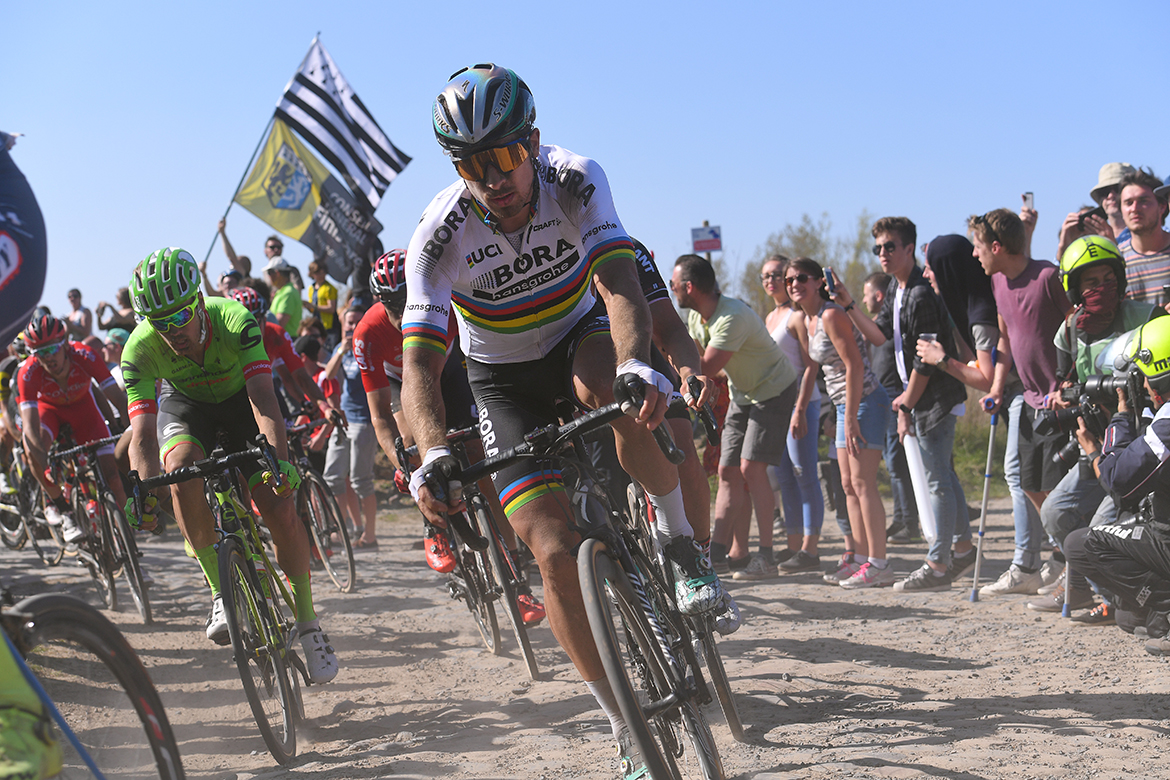
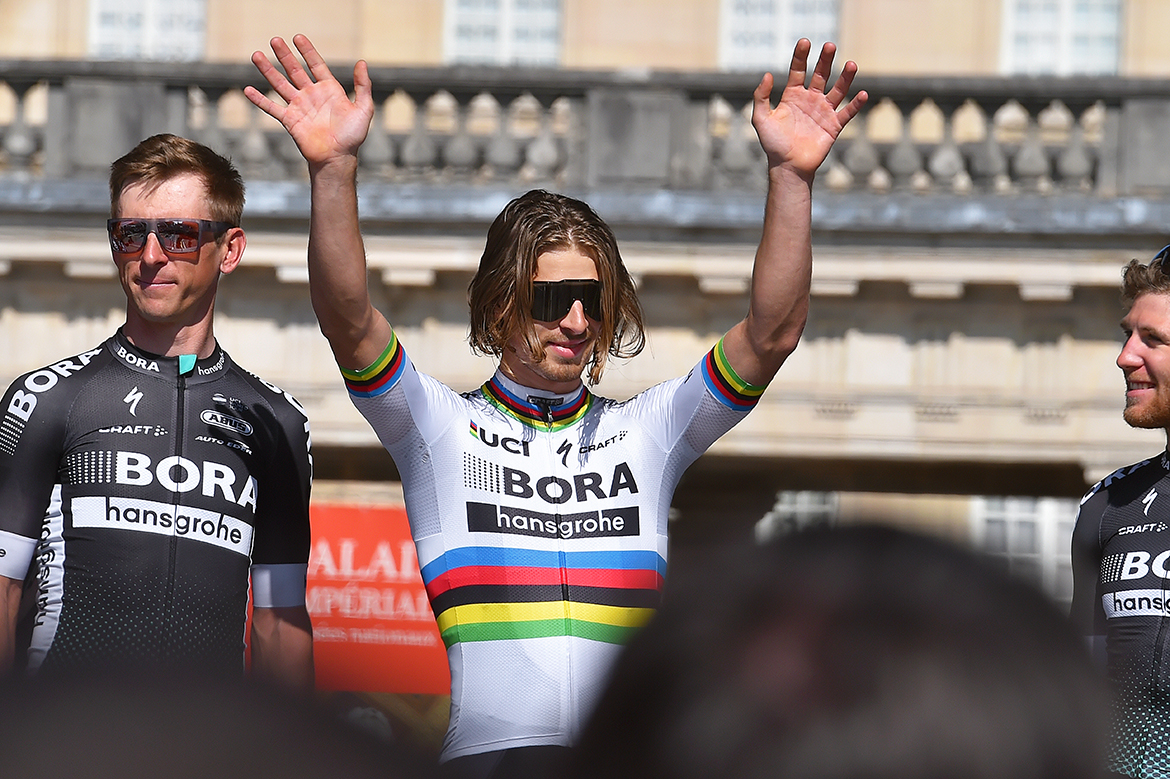
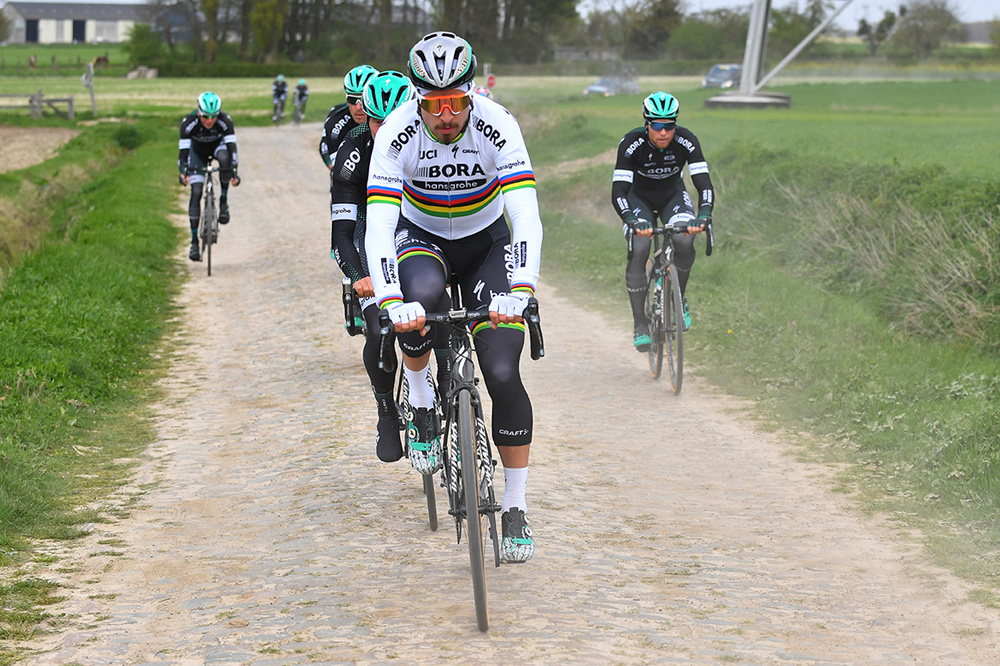
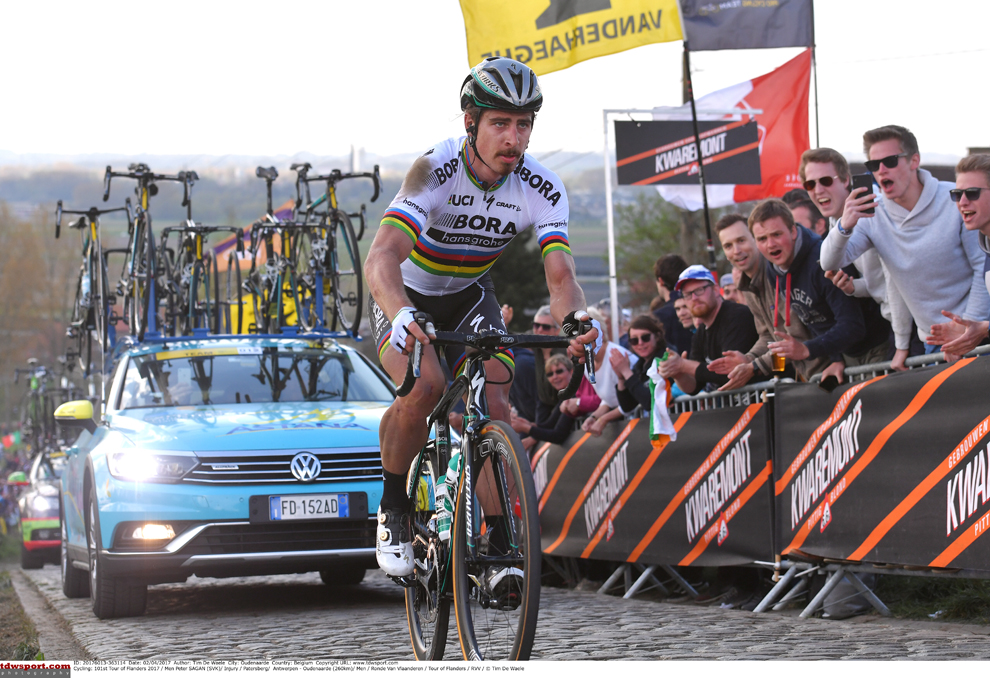
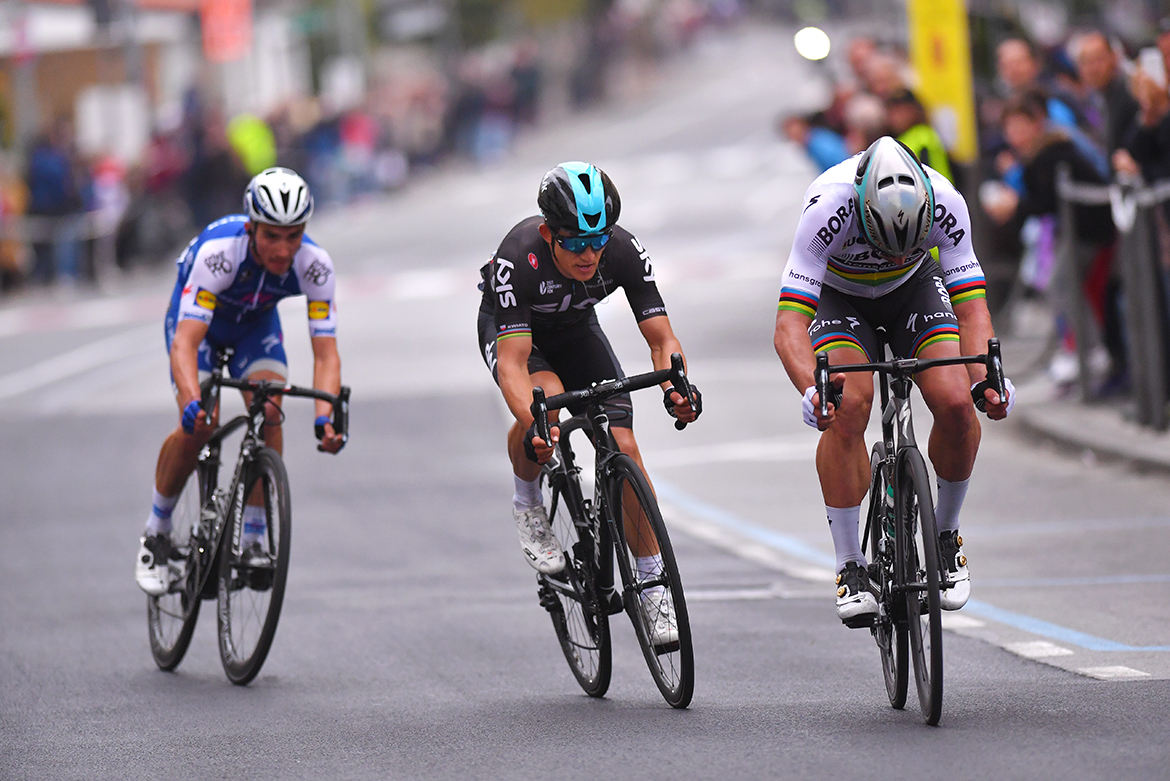
While the BMC team celebrated Greg Van Avermaet’s victory at Paris-Roubaix and Quick-Step Floors partied hard on Sunday night to say farewell to Tom Boonen, the atmosphere at Bora-Hansgrohe was far more sombre.
The crowds still packed around the team bus parked outside the Roubaix velodrome but there was an air of sadness, of disappointment, of regret. It summed up Peter Sagan’s and Bora-Hansgrohe’s spring campaign.
The new WorldTour team had set a goal of winning a Monument, convinced that Sagan could repeat his win at last year’s Tour of Flanders or do even better. As the dust settles on the cobbled Classics, Bora-Hansgrohe were left virtually empty handed and understandably a little frustrated. Sagan’s lustre has been dulled in recent weeks, with Greg Van Avermaet the new king of spring. During the cobbled Classics, Sagan created more headlines for his long hair and cryptic replies to questions than his results out on the road.
Sagan’s natural swagger and huge talent often make winning look easy but as was to be expected, his biggest rivals raised their tactical game in the most important, most tactically complex races, often isolating Sagan, leaving him exposed and in difficulty. In reply, he occasionally became reckless, over generous, and was forced to personally make up for a lack of a strong team that could support him. His rivals also used that against him, as was the case when Michal Kwiatkowski made him drag the attack to the Via Roma and lead out the sprint. It was enough for the classy Polish rider to snatch victory.
Quick-Step Floors were happy to lead the psychological and physical battle in the cobbled Classics, using their strength in numbers to kick off the biggest and hardest races sooner than was deemed logical. It didn’t always come off – Gent-Wevelgem was an embarrassing disaster due to Nikki Terpstra’s negative tactics – but Philippe Gilbert won the Tour of Flanders and the team won the unofficial prize as team of the spring.
Sagan didn’t seem to have a reply to Quick-Step Floors’ multiple options and was exposed again and again. At the Tour of Flanders he was punished harshly for riding an inch too close to the barriers, losing any chance of victory. But what else could he do with Gilbert up the road and riding to victory? He had to risk everything and paid the ultimate price.
At Paris-Roubaix he was unfortunate to suffer two punctures when on the attack but then paid for his efforts after chasing. Van Avermaet had three teammates to help him when he crashed and changed bikes, Sagan could only count on Bodnar.
Get The Leadout Newsletter
The latest race content, interviews, features, reviews and expert buying guides, direct to your inbox!
“I’m happy with my form but not with the results. I can’t be happy with the results I’ve had this spring,” Sagan said before enjoying a few days off at home.
Time for a debrief
Bora-Hansgrohe directeur sportif and Sagan’s coach Patxi Vila was also looking forward to a break after three months of intense racing and training. His final task will be to draw up a report on Bora-Hansgrohe’s spring campaign and debrief with the team and with Sagan.
“We all need some time off now. It’s been a tough early part of the year. I’ll make some kind of report, the way he [Sagan] likes it, speaking his language,” Vila explained.
“If you look back, I think we were at the level people expected of us. I’m really proud of the guys and the commitment of everyone in the team. We’re building a real team and some new talents too. Most of us are new this season. I’m sure we’ll have a nice future.”
Yet Vila concurred with Sagan’s simplistic analysis that his results had not matched his form.
“I think he didn’t get what he deserved,” Vila said. “I think he was really strong this spring. If I look at the pure numbers, he was stronger than last year. But if you look at the results, he wasn’t. But that’s cycling, you can be strong but it doesn’t automatically mean you will get good results.”
Vila tried to fight back at other team’s anti-Sagan tactics in the Classics but Sagan had little option but to attack and try to go mano-a-mano with his biggest rivals. It rarely worked out.
“When you can win a mountain stage and a sprint stage at Tirreno-Adriatico and then drop everyone on the Poggio at Milan-San Remo, then for sure they’ll race against you,” Vila pointed out.
“If I was in another team and racing against Peter, I’d probably do the same tactics as they did. But I like to put it the other way around. If people race against you, it means you’re the favourite. It always means winning is harder but then the win tastes better.”
Sagan will gradually train again after his break and return to racing at the Tour of California in May. A training camp in the USA and the short stage race kicks off the start of Sagan’s second campaign.
“We’ll focus on the goals in the second half of the season, such as the Tour de France and the World Championships yet again. We’ve got some nice objectives up the road and we’ll fight for them,” Vila concluded.
Team manager Ralph Denk also looked ready for a break. Signing Peter Sagan and his entourage revolutionised the German-based team he had developed from the basement of his bike shop, making a huge step up to WorldTour level. He insisted he was enjoying Sagan being the centre of attention and so were Bora, Hansgrohe and Specialized, who bankrolled Sagan’s salary of a reputed €6 million per season.
“Our goal was to win a monument with Peter. We finished a close second but it’s also true that second is the first loser,” Denk said.
“All the attention is new for us but we’re enjoying it and I think we’re managing it well. Peter is easy to handle and so there’s a nice atmosphere in the team. It’s what I expect for my sponsors and they’re really happy.
“I’m happy with our performances in the spring, I think we did a lot of good rides. Peter was always on good shape. We just missed a bit of luck but that’s part of the spring Classics. We lost Milan-San Remo by very little, we were in a good position in the Tour of Flanders before the crash and we were well placed at Paris-Roubaix too until the punctures.
“We’re not downbeat. We know that all the tactics part of the game. If you wear the rainbow jersey it’s not easy to win races. Look at what happened to other world champions.”
Denk believed Bora-Hansgrohe got their preparation for the spring right and wouldn’t change anything.
“No, nothing,” he said with pride.
“We did a lot of right things and the preparation was good. Peter and the Classics group of riders started racing in Australia and then went directly to altitude training. Guys like Bodnar, Burghardt and the others were in good shape. I think we did a lot of things right and with a bit more luck we could have won two monuments.”
He pushed back on question about strengthening the team for next season. And not because he might struggle to find the right riders who can help Sagan fight back in a game of numbers.
“It’s not easy to find additional budget… I’m happy with how we’re doing,” he said.

Stephen is one of the most experienced member of the Cyclingnews team, having reported on professional cycling since 1994. He has been Head of News at Cyclingnews since 2022, before which he held the position of European editor since 2012 and previously worked for Reuters, Shift Active Media, and CyclingWeekly, among other publications.